Orthodox Christians and non-Orthodox Christians celebrate Easter with joyous church services, followed by family meals and gatherings. Eastern Orthodox churches hold a Paschal Vigil on Holy Saturday, the day before Easter, and a candlelight procession may be held that night, with Easter services and celebrations beginning at midnight.
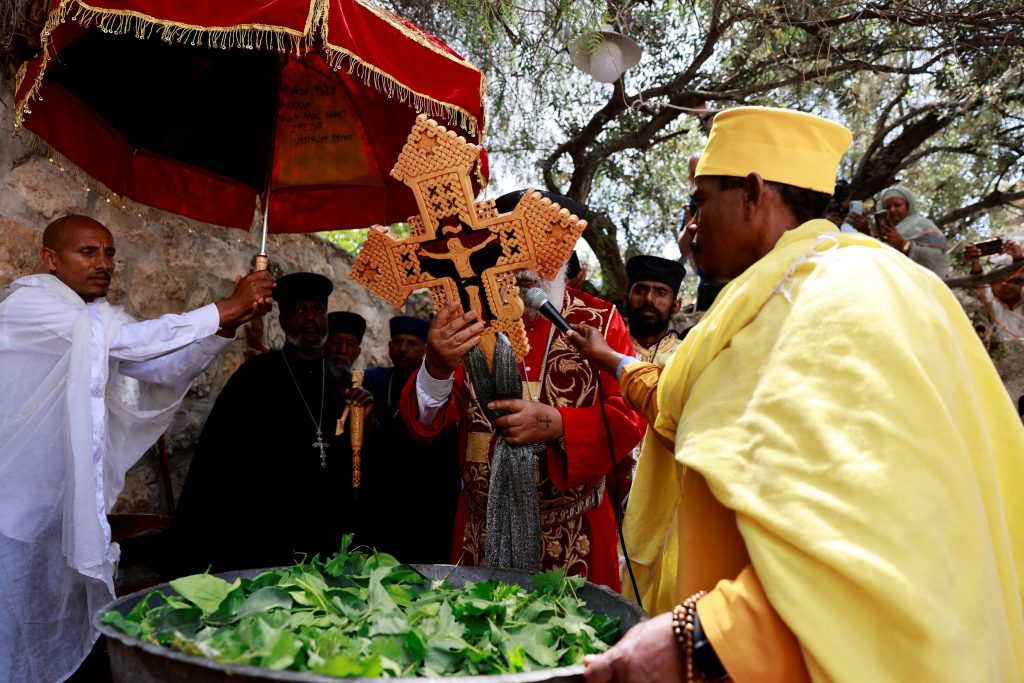
Members of the Ethiopian Orthodox clergy attend the Washing of the Feet ceremony on Easter Holy Week at the Ethiopian section of the Church of the Holy Sepulchre in Jerusalem’s Old City, May 2, 2024. REUTERS/Ammar Awad
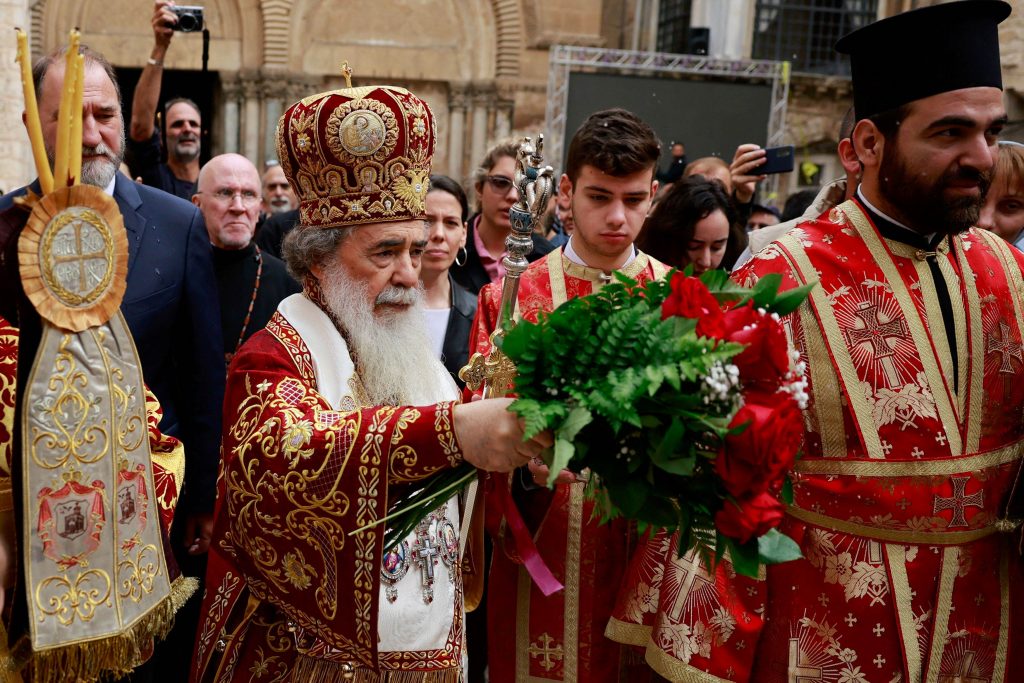
Members of the Ethiopian Orthodox clergy attend the Washing of the Feet ceremony on Easter Holy Week at the Ethiopian section of the Church of the Holy Sepulchre in Jerusalem’s Old City, May 2, 2024. REUTERS/Ammar Awad
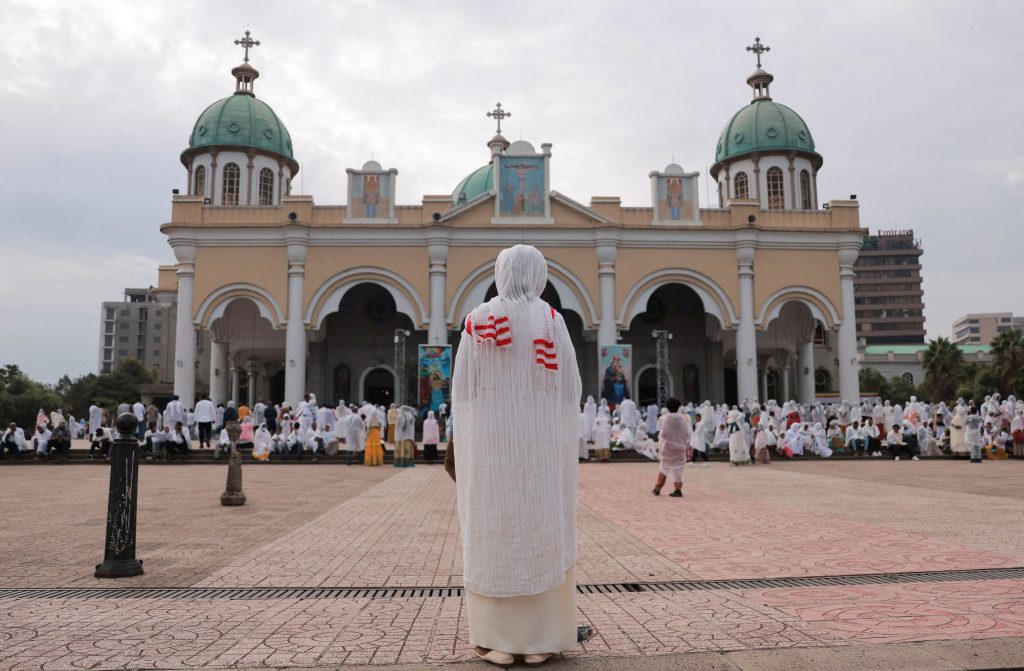
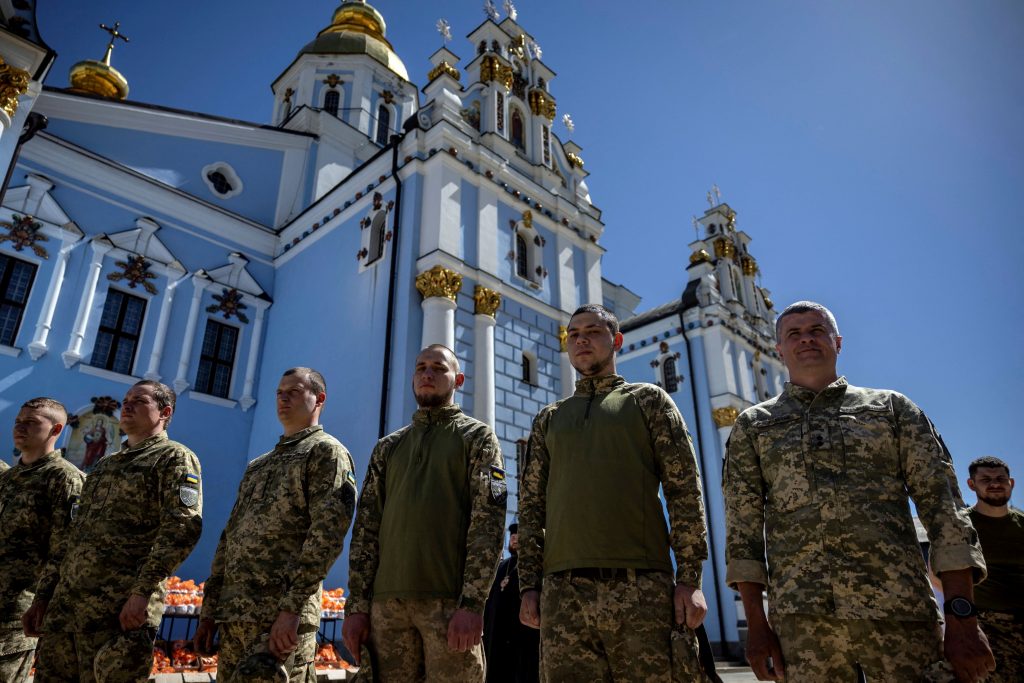
Ukrainian soldiers attend an Orthodox service before delivering Easter cakes to fellow servicemen at the front for Orthodox Easter, amid Russia’s attack on Ukraine, during a ceremony at St Michael’s Cathedral in Kyiv, Ukraine, May 2, 2024. REUTERS/Thomas Peter
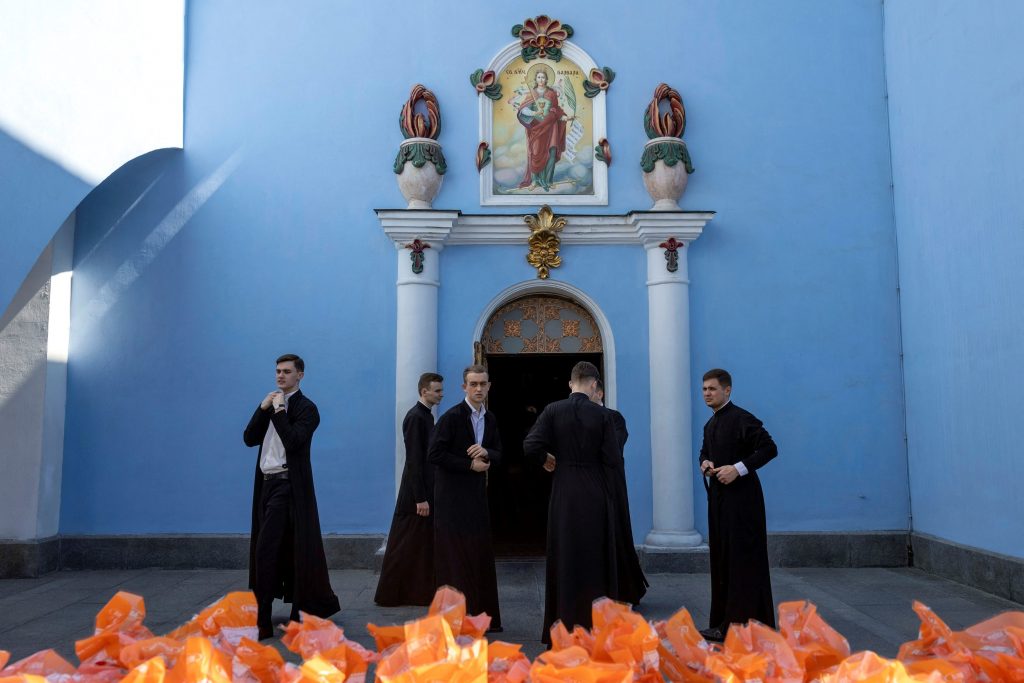
Orthodox clergymen attend a service blessing Easter cakes that will be sent to Ukrainian servicemen at the front for Orthodox Easter, amid Russia’s attack on Ukraine, during a ceremony at St Michael’s Cathedral in Kyiv, Ukraine, May 2, 2024. REUTERS/Thomas Peter
While Christians across all denominations generally consider Easter Sunday – or Pascha (Passover) as it is known in Eastern Orthodox Christian tradition – the pinnacle of the Christian religious calendar, the East and West celebrate Jesus Christ’s day of the Resurrection on different days.

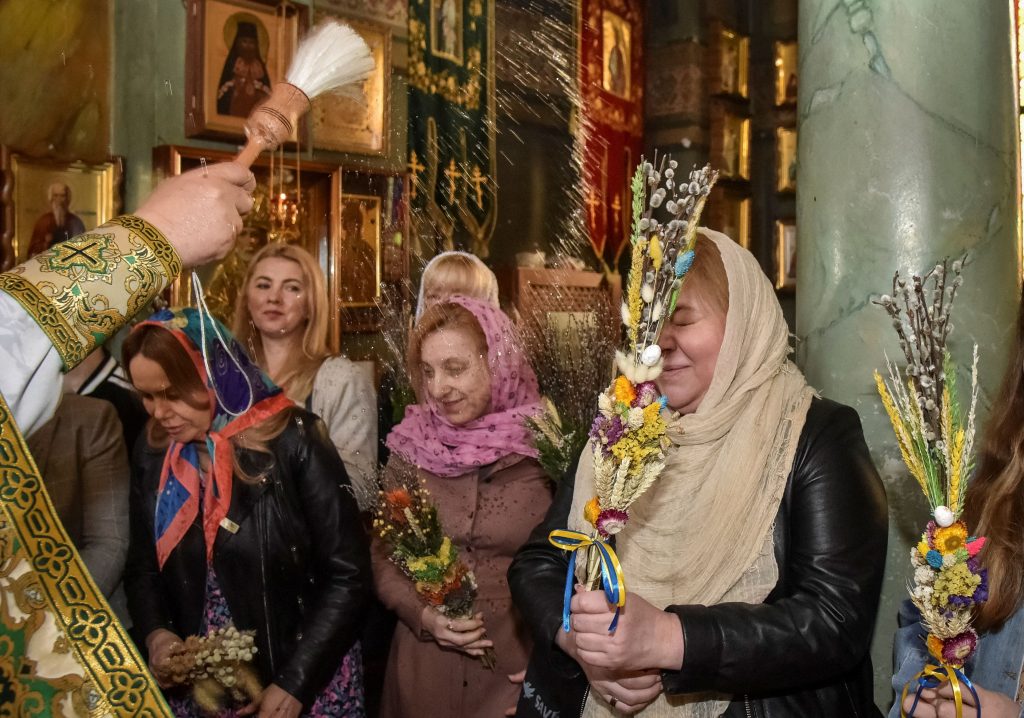
A priest sprays holy water on believers after a service which marks the Orthodox feast of Palm Sunday in a church, amid Russia’s invasion of Ukraine, in Lviv, Ukraine April 28, 2024. REUTERS/Pavlo Palamarchuk
Orthodox Christians celebrate Easter later than most Christians in the Western world because the churches calculate the holiday by different calendars.
Orthodox Christians follow the Julian calendar when it comes to celebrating Easter Sunday. The Julian calendar was established by Julius Caesar in 45 B.C. and is based on the solar cycle—Earth’s revolutions around the sun.
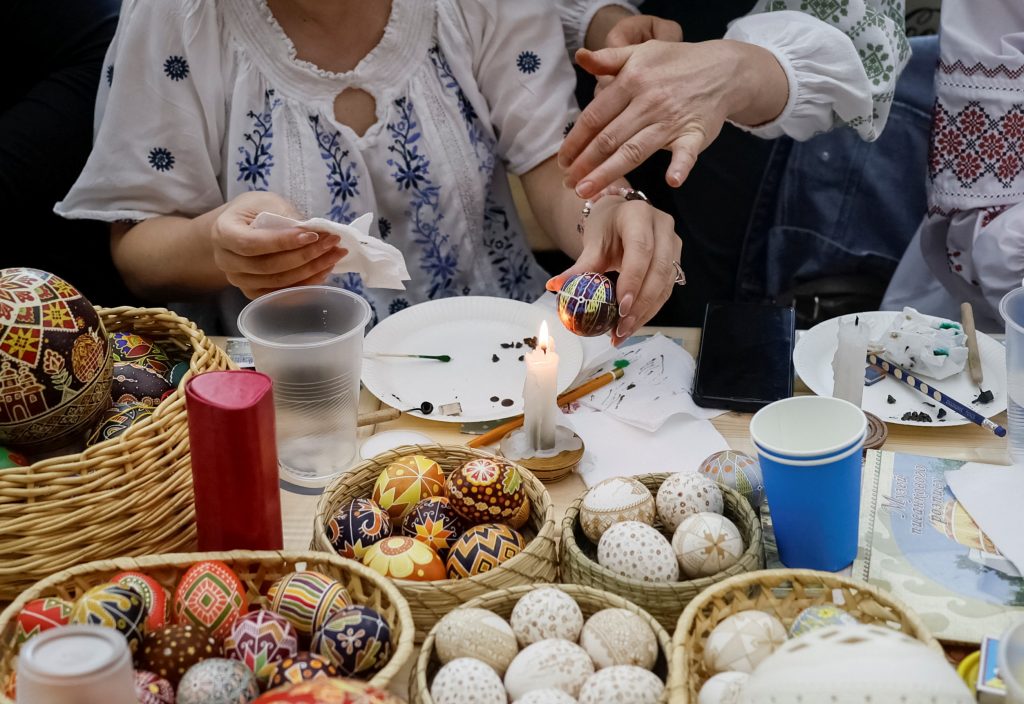
Women practice decorating a pysanka, a Ukrainian Easter egg, as they attend a lesson in traditional style painting, as part of the upcoming celebrations of Easter, amid Russia’s attack on Ukraine, in Kyiv, Ukraine, April 30, 2024. REUTERS/Alina Smutko
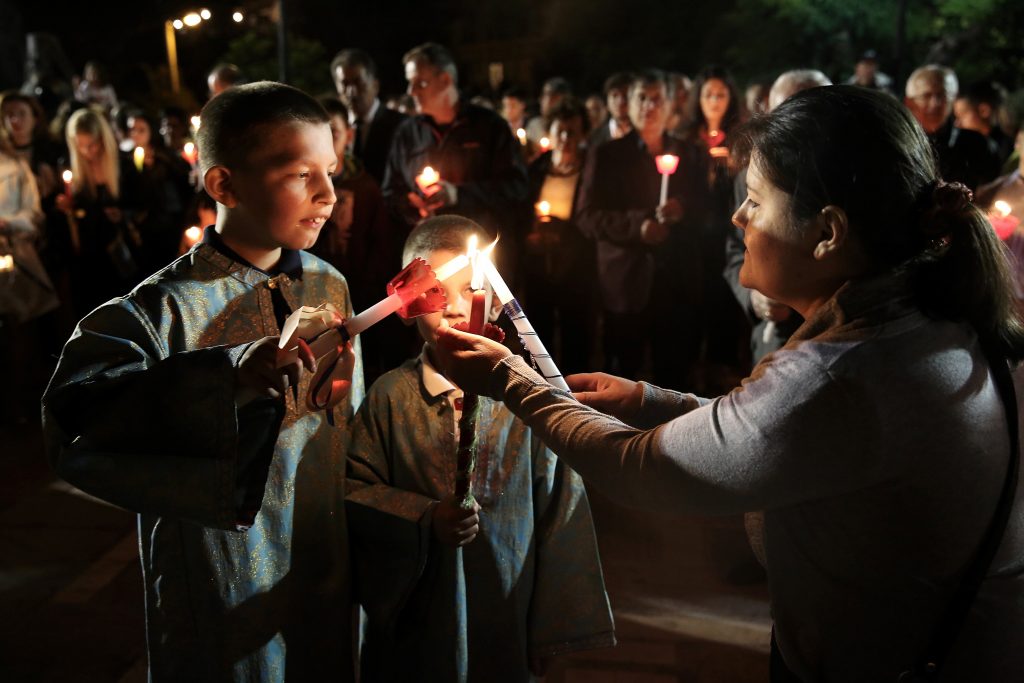
The West, however, adopted the Gregorian calendar, instituted in 1582 by Pope Gregory XIII to correct inaccuracies in the Julian Calendar. The new calendar added leap years to correct an 11-minute miscalculation that caused seasons to become out of sync with the calendar, thus pushing Easter away from the spring equinox. Under the Gregorian calendar, churches established Easter to be held on the first Sunday after the full moon which occurs on or after the spring equinox. In 2024, Easter in the West was celebrated on March 31.

U.S. President Joe Biden and first lady Jill Biden attend the White House Easter Egg Roll, in Washington, U.S., April 10, 2023. REUTERS/Evelyn Hockstein
Much of the world came to officially recognize the Gregorian calendar, but Orthodox churches, primarily in Greece, Cyprus, Russia, Romania, Bulgaria, and others, continue to observe Easter according to the Julian calendar. Interestingly, the Greek Orthodox Church adopted the Gregorian Calendar for Christmas in 1923, distinguishing itself from the other eastern Churches which celebrate Christmas on January 6th or 7th.


